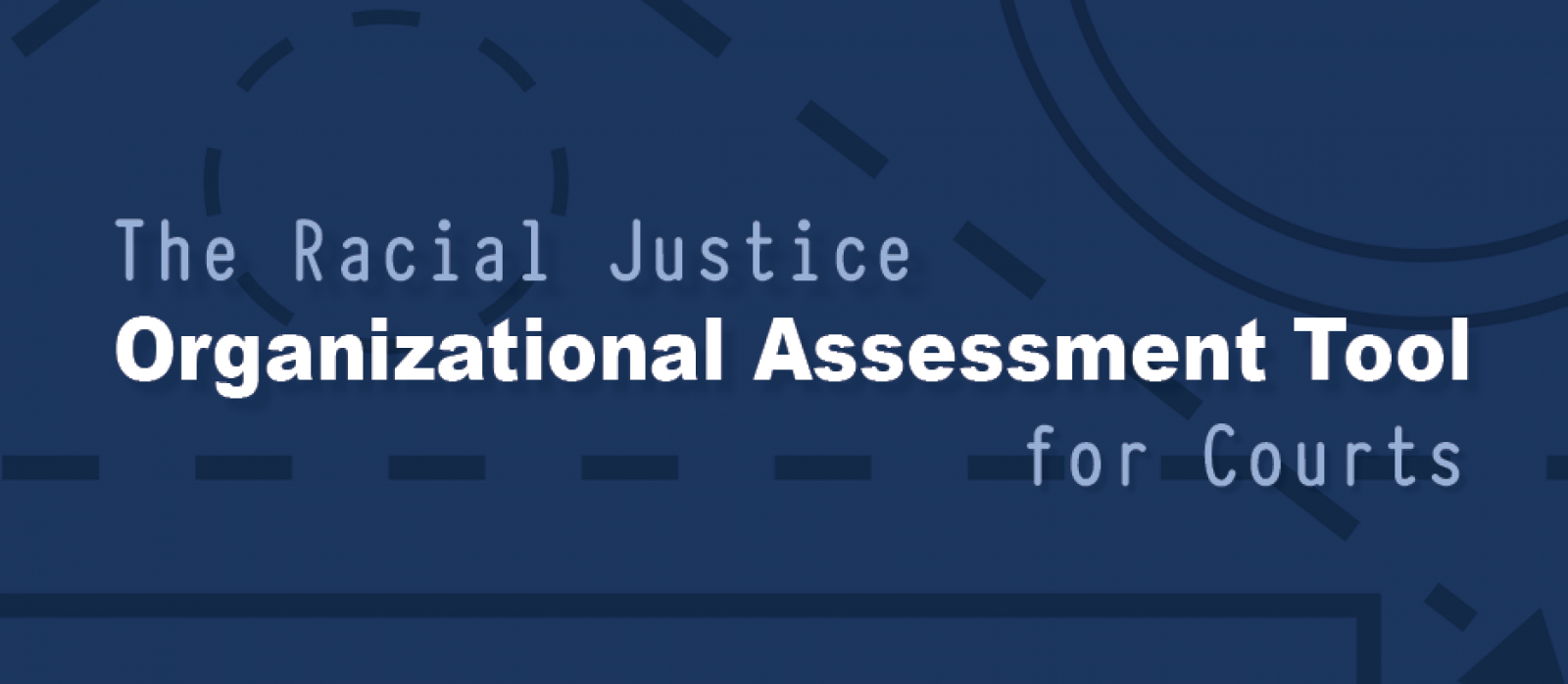Online tool delivers racial justice assessment, custom roadmap
Courts looking for a custom roadmap to develop a more diverse, equitable and inclusive workplace can now take advantage of a new online self-service resource, the Racial Justice Organizational Assessment Tool for Courts.
A project of the Blueprint for Racial Justice that was supported by the State Justice Institute, the tool provides courts with a framework for self-assessment and guidance for next steps.
“In 2020, the Conference of Chief Justices and the Conference of State Court Administrators resolved to ‘intensify efforts to combat racial prejudice within the justice system, both explicit and implicit, and to recommit to examine what systemic change is needed to make equality under the law an enduring reality for all, so that justice is not only fair to all but also is recognized by all to be fair,’” said Jennifer Elek, an NCSC principal court research associate and project director. “The Racial Justice Organizational Assessment Tool for Courts was designed to support any court professional who is engaged in this critical work. Individuals and policy teams can use the assessment tool to help them identify opportunities for learning and improvement, and to inform their decisions about immediate priorities for action.”
The assessment asks users to explore four organizational areas:
- Judicial Commitment, Vision and Leadership
- Capacity for Community-Based Learning & Data-Driven Decision-Making
- The Bench & Court Workforce
- Court Services
Before starting the online assessment, users should review the questions in advance so they have the right information available to complete the form in a single session. Once the assessment is complete, all questions, user responses, and results will appear on a summary report page. The summary will include guidance and additional resources.
“The existing imperfections in our justice systems have profound and lasting effects,” said Blueprint for Racial Justice Steering Committee Member and Connecticut Chief Justice Richard A. Robinson. “This assessment tool can help us provide better service to the public and improve overall trust in the system. By taking an honest look at how courts are doing business, we can identify blind spots that are impacting our ability to deliver ‘equal justice under law.’”
Get started on your racial justice organizational assessment today! For more information, contact Jennifer Elek at jelek@ncsc.org or Edwin Bell at ebell@ncsc.org.
Arkansas disciplinary counsel to lead Center for Judicial Ethics
NCSC has named David J. Sachar as the new director of the Center for Judicial Ethics, effective April 3. He will succeed the center’s longtime director, Cynthia Gray, who will continue to provide an important supporting role.
Sachar has served as the executive director of the Arkansas Judicial Discipline & Disability Commission since 2013. He is a frequent presenter on judicial ethics and an active member of the national and international judicial ethics community. He serves on the board of directors of the Association of Judicial Disciplinary Counsel and is a longtime advisory committee member for NCSC’s Center for Judicial Ethics.
Sachar’s appointment will build on the center’s existing focus by expanding training opportunities for state judicial ethics staff and support for judges and court systems in other countries as part of NCSC’s rule of law work.
NCSC project roundup featured in recent Tiny Chat
Need to get caught up on some of NCSC’s latest projects? Tune in to the recent Tiny Chat Commercial episode for some fast, catchy spots on everything from trainings for guardians to judicial mental health diversion toolkits. The team also created a quick companion guide for easy access to the featured projects.
Learn more at ncsc.org/tinychats.
